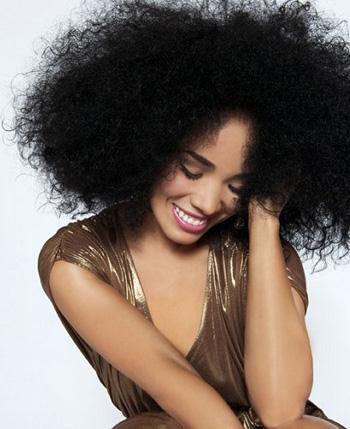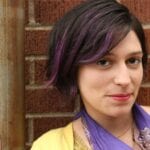Kreesha Turner is an award-winning musician with two hit albums under her belt. She’s also a budding anti-bullying advocate who wants to help bring attention to the issue of homophobic harassment in schools.
That’s why she’ll be performing at Proud FM’s Climax, an anti-homophobia benefit for PFLAG in Toronto.
“It’s about getting people to be aware of the issues,” she explains. “And then putting their foot down.”
As a quiet kid with a Jamaican mom and a Canadian dad, Turner was also bullied as a teen. “I went to an arts school when I was in Edmonton, and at the time, I was probably one of the very few ethnic people in my school.” She remembers feeling alienated in the dance program surrounded by all white bodies. “Because of my mixed ethnicity, I’m shaped differently than the average dancer. When I stood in the mirror with all the other dancers, I was much curvier than the rest of them.”
Turner later moved to Jamaica and finished school there, which she says left her feeling isolated again.
“The moment I got there I experienced culture shock,” she says. “I didn’t understand why people treated me so differently there because of my skin colour . . . it was almost as if I’d never fit into either of the race categories.”
That’s why Turner wants kids to know that it’s okay to feel different. “Part of standing up against bullying is saying . . . it’s okay to not be like anybody else,” she says. “Whether it’s in regards to homophobia, or it’s in regards to skin colour or the colour of your hair, it shouldn’t be a factor. We should all stand up for each other.”
Going from Canada to Jamaica, which Turner calls “one of the most homophobic nations in the world,” had a profound effect on her. She quickly saw the harsh reality that many gay people there face. “I’ve had peers and teachers and friends who are gay my whole life, and I’d never seen them as different,” she says. “It was such a shock because I didn’t understand why people had such a negative stance on it . . . I’d never experienced such strong opposition against somebody’s life choices.”
Turner, who is straight and identifies as an ally, always had music and performing as an outlet when she felt isolated. But she also credits her parents for being there for her: “I’ve always been able to talk to someone.”
She wants youth who are being harassed to do the same. “Speak to somebody you trust . . . and don’t allow whoever is doing the bullying to get away without punishment, because if nobody knows, nobody can punish them or know that they’re being inappropriate,” she says.
“And adults need to let their kids know that it’s unacceptable. That’s where it starts.”


 Why you can trust Xtra
Why you can trust Xtra


